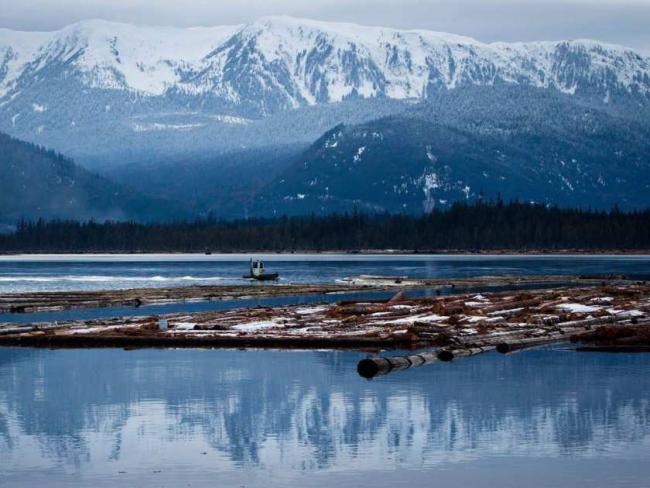Articles Menu

In June, the Federal Court of Appeal quashed the federal government’s approval of the controversial Enbridge Northern Gateway Pipeline, which would ship diluted bitumen from Alberta’s oilsands through the Great Bear Rainforest to the British Columbia coast.
However, upon review of the court’s reasons for this decision it becomes clear that this legal victory is limited, and does not address the fundamental issues on environmental assessment or consultation processes. The court was presented with a great deal of strong arguments and evidence by those who challenged the Gateway approval, but only one of those arguments prevailed: The argument that the government failed in upholding its constitutional duty to consult First Nations who would be affected by the pipeline. However, the court’s remedy should have been more substantive.
More problematic is the court’s abrupt dismissal of the arguments based on the Canadian Environmental Assessment Act — whether the review panel had considered all of the environmental effects of the project, including potential harm to Humpback whales and other species at risk; whether the panel had appropriately balanced the project’s benefits and impacts; and whether the panel ignored evidence that spilled bitumen would sink in the marine environment.
Relying on Harper-era changes to the Canadian Environmental Assessment Act, the court dismissed all related arguments by saying that only cabinet — not the court — can now review and require changes to a pipeline review panel report. While the Harper government set a precedent by politicizing what was previously a National Energy Board decision, we also believe that the court erred in finding that the review panel report cannot be challenged directly. This troubling result means that in the long run, the Enbridge court victory will be extremely harmful for the environment.
Environmental assessment panels can make mistakes. First Nations and environmental organizations have launched many successful challenges to panel reports over the years related to oilsands projects, metal mines, and hydroelectric dams. The Enbridge decision may bring that practice into doubt, increasing the likelihood that future projects that cause significant environmental harm will be approved even when they rely on flawed panel reports. It gives little comfort to First Nations and others concerned about unlawful assessment processes to be told that they should take their concerns to cabinet rather than to the courts.
While the Enbridge decision may be appealed to the Supreme Court of Canada, another remedy lies with the Trudeau government. Prime Minister Trudeau has already committed to reform Canada’s environmental assessment law and processes based on sound science, and to restore robust oversight and public trust. He has also said his government will support reconciliation with Indigenous Peoples by fully implementing the United Nations Declaration on the Rights of Indigenous Peoples.
Perhaps the most significant result of the Enbridge victory is that it lays bare the desperate need for fundamental reform to Canada’s environmental assessment laws to support the long-term interests of all Canadians, rather than the short-term goals of extractive industries. Panels need to conduct meaningful reviews about whether and how projects can make a positive contribution to Canada’s long-term social, cultural, and environmental health, and those results need to be reviewed by courts, from the lens of their compliance with Canada’s laws.
And while the victory lies with the hard work of the First Nations who took the risk in challenging the Enbridge project, the court’s ruling shakes the foundation of Canada’s duty to consult.
The prime minister has an important task to restore and rebuild our trust in environmental assessment review processes. This court decision tells us that tinkering with these broken review processes will not be enough — we need fundamental changes that go well beyond repairing the damage inflicted by the Harper omnibus bills. We need a new approach to environmental assessment law that respects First Nations’ rights and that will help guarantee a healthy environment for Canadians now and well into the future.
Grand Chief Stewart Phillip is President of the Union of B.C. Indian Chiefs. Devon Page is Ecojustice Executive Director.
[A worker uses a small boat to move logs on the Douglas Channel at dusk in Kitimat, B.C. Douglas Channel is the proposed termination point for an for an oil pipeline from Alberta as part of the Enbridge Northern Gateway Project. DARRYL DYCK / THE CANADIAN PRESS]